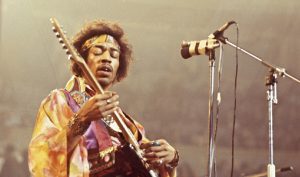“Fortunate Son” is a song by Creedence Clearwater Revival released on their album Willy and the Poor Boys in 1969. It was released as a single, together with “Down on the Corner”, in September 1969. This song reached #14 on the United States charts on 22 November 1969, the week before Billboard changed its methodology on double-sided hits. The tracks combined to climb to #9 the next week, on the way to peaking at #3 three more weeks later, on 20 December 1969. It won the RIAA Gold Disc award in December 1970. Pitchfork Media placed it at number 17 on its list of “The 200 Greatest Songs of the 1960s”. Rolling Stone placed it at #99 on its “500 Greatest Songs of All Time” list. In 2014, the song was added to the National Recording Registry by the Library of Congress for being “culturally, historically, or aesthetically significant.”
The song is a counterculture era anti-war anthem, criticizing militant patriotic behavior and those who support the use of military force without having to “pay the costs” themselves (either financially or by serving in a wartime military). The song, released during the Vietnam War, is not explicit in its criticism of that war in particular, but the clear attacks on the elite classes (the families that give birth to “fortunate sons”) of United States and their withdrawal from the costs of nationalistic imperialism are easy to contextualize to that conflict. The song was inspired by the wedding of David Eisenhower, the grandson of President Dwight David Eisenhower, to Julie Nixon, the daughter of President Richard Nixon, in 1968. The song’s author and singer, John Fogerty, told Rolling Stone:
“Julie Nixon was hanging around with David Eisenhower, and you just had the feeling that none of these people were going to be involved with the war. In 1968, the majority of the country thought morale was great among the troops, and eighty percent of them were in favor of the war. But to some of us who were watching closely, we just knew we were headed for trouble.”


